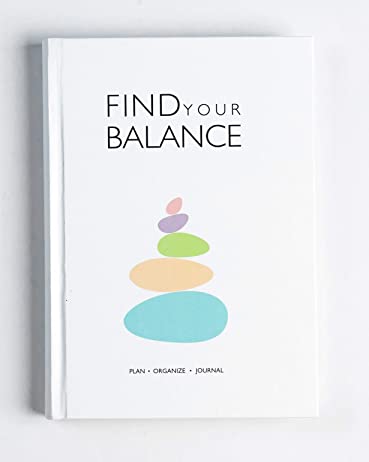Life is all about finding a sense of balance. As we move ahead in an uncertain world, there are some tools that help anchor you and keep you rooted to your core. One of these tools is a simple journal. Journaling is a time-tested way of introspection and reflection. However, there is something interesting happening in the realm of journaling right now.
The Journal Lab
The brand has indeed explored the potential of journaling in their products. The “Find Your Balance” planner cum journal has a daily template that encourages the user to start the day with an affirmation, and then plan the day by giving importance to work, family and self-care. Often, we miss out on self-care and family, giving importance only to work. But, this balanced planner ensures that we give due attention to all key areas of life. The journal has a daily section for reflection, doodling and journaling as well. The monthly tracking sheets and yearly reflection sheets add to the holistic applicability of the journal.

While this journal cum planner works for adults, the brand has a more guided journal for children called My Little Big Day.

Harini Palanisamy, Founder of The Journal Lab tells us how journaling can be a boon for your life, and how a well-designed journal elevates the journaling experience to another level.
It’s not very often that we get to see a planner that incorporates the element of journaling. Tell us about how you conceived the idea of merging the two?
Both planning and journaling are essential to a person’s growth and success. While planning helps with productivity, journaling improves a person’s overall emotional wellbeing and happiness. So, I wanted to create a planner where a person could do both, and not get into the hassle of keeping two different books.
What are the benefits of journaling?
Journaling as a habit has a big impact on your mental health. It’s a powerful stress management tool, helps you manage your emotions better, boosts your mood, increases your positivity and happiness, helps you sleep better.
I notice that the planner cum journal is not dated. Why is this so?
So, you don’t have to worry about skipping days and the pages getting wasted. Undated planners are flexible and encourages you to start a good habit any day and any time of the year, instead of waiting for a new year.
The section at the beginning of the journal, quite aptly and concisely introduces the user to how they can use this journal. What are some of the tips that you would like to give our readers that would help them extract maximum benefit out of your journal in particular, but also in general from the practice of journaling?
While there are no hard and fast rules to journaling, the following tips can help you reap the maximum benefit of this habit:
- Journal every day or regularly
- Stick to a particular time that works best for you, ideally make it your early morning or bedtime routine
- Its best if you could do it in your private space and get uninterrupted time for journaling. Treat this like meditation, it’s as therapeutic as it is
You also have a journal for kids, titled “My Little Big Day”. Tell us more about that.
My Little Big Day is a daily journal for children aged 5 to 12 that aims to instil good values, improve their mental health, and help them grow up to become emotionally strong adults.
By making the journal a bedtime routine it also strengthens the parent child relationship by providing a place to open up conversations, talk about their day and do activities together.
The journal has weekly themes like Kindness, Honesty, Respecting Diversity, Accepting and learning from failure and more which aims to instil positive qualities in children through simple, thought provoking questions and weekly challenges.
How does journaling specifically help children?
Children often struggle to understand their own emotions. Journaling helps children to identify and manage their emotions better. It helps them to open up and express their innermost feelings. Cultivating this habit from an early age will help them grow up into resilient and emotionally healthy adults.
The process of journaling can be quite abstract. How can one make it more amenable for children?
The kids journal has guided prompts to make journaling easier for kids. They only need to answer to the daily prompts and try to express in words what they feel. We have seen kids introduced to journaling from an early age are able to pen down their thoughts and feelings beautifully. Initially efforts have to made to make it a habit, but once its incorporated into their routine, they will enjoy doing it and will look forward to it every day.
The lockdown and the pandemic have in general forced people to take a critical look at their lives. Have you noticed an increase in the trend of journaling during this period? Do you think it is here to stay?
Absolutely, I think the pandemic has made people to look inward & not outward for their happiness. It has taught us to appreciate the simple things and value family and relationships more. Journaling is undoubtedly one of the most powerful tools for introspection that can improve one’s quality of life on every level. Journaling is getting an increased awareness for its immense benefits on emotional well-being, and it’s definitely here to stay & change the world, for better.




